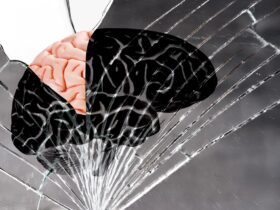In the realm of skill development, whether artistic, technical, or intellectual, there lies a fundamental principle often overlooked by the eager beginner: the importance of mastering foundational skills before venturing into the realm of creativity. This guide, “Mastery Before Creativity,” delves into the rationale behind this principle and outlines a structured path for those seeking to achieve excellence in their chosen field. By prioritizing mastery, individuals lay a robust groundwork that enables greater freedom, innovation, and effectiveness in creative pursuits. This approach not only enhances the quality of outcomes but also accelerates personal growth and fulfillment.
1. Understanding the Foundations
At the heart of every great innovation, every breathtaking piece of art, and every groundbreaking scientific discovery lies a deep understanding of foundational principles. These are the immutable laws, the basic techniques, and the essential knowledge that govern a field. Just as a towering skyscraper relies on a robust foundation to reach great heights, so too does mastery in any discipline depend on a solid grasp of its fundamentals.
The Bedrock of Expertise
Foundational skills and knowledge serve as the bedrock of expertise. They are what enable practitioners to navigate their field with confidence, make informed decisions, and approach problems with a strategic mindset. Without a firm grasp of these fundamentals, one’s endeavors are akin to building on quicksand—unstable and prone to collapse under scrutiny or challenge.
Why Foundations Matter
- Clarity in Complexity: Mastery of the basics allows one to see through the complexity of advanced concepts and distill them into understandable elements. This clarity is crucial for innovation and creativity, as it enables individuals to identify and focus on what truly matters.
- Efficiency in Learning: With a strong foundation, learning advanced skills becomes more efficient. Individuals can quickly identify connections between new information and what they already know, facilitating faster and deeper learning.
- Flexibility in Application: Understanding the fundamentals gives individuals the flexibility to apply their skills across a wide range of scenarios. It allows for adaptability, as the core principles remain constant even as contexts change.
- Quality of Output: The quality of one’s work is significantly enhanced by a thorough grounding in foundational skills. This mastery ensures that creative endeavors are not only innovative but also robust, coherent, and impactful.
Building Your Foundation
To build a strong foundation, focus on these key strategies:
- Deliberate Practice: Engage in focused, intentional practice that targets your weaknesses and pushes the boundaries of your comfort zone.
- Seek Feedback: Regular feedback from mentors or peers is invaluable for identifying gaps in your understanding and guiding your improvement.
- Reflective Learning: Take time to reflect on what you’ve learned, understand how it fits into the broader landscape of your field, and consider its applications.
- Cultivate Curiosity: Maintain a sense of curiosity about your field. Explore its history, its leading figures, and the principles that have stood the test of time.
Examples Across Disciplines
In music, a deep understanding of scales, harmony, and rhythm forms the foundation upon which all complex compositions are built. In mathematics, a firm grasp of basic operations, algebra, and geometry enables the exploration of higher-level concepts such as calculus and beyond. Similarly, in the visual arts, mastering perspective, color theory, and composition is essential before experimenting with abstract forms and styles.

2. The Journey to Mastery
The path to achieving mastery in any field is both rigorous and rewarding. It’s a journey that requires dedication, persistence, and a strategic approach to learning and practice. Understanding the nuances of this journey can help aspirants navigate through the stages of skill development with clarity and purpose. This journey isn’t linear; it’s a cyclical process of learning, practicing, failing, and growing.
Stages of Mastery
- Novice: At this stage, individuals are introduced to the basics of their field. The focus is on understanding fundamental principles and concepts. Learning is highly structured, and guidance from teachers or mentors is crucial.
- Competent: With the basics under their belt, individuals begin to apply what they’ve learned to real-world situations. They can perform tasks competently but may still require assistance when faced with complex challenges.
- Proficient: Proficiency is marked by a deeper understanding and fluid application of skills. Individuals can solve problems more independently and start to intuitively grasp the nuances of their craft.
- Expert: Experts have a broad and deep knowledge of their field. They can innovate, solve complex problems creatively, and often contribute new knowledge or techniques to their field.
- Master: Mastery is the culmination of deep experience and expertise. Masters not only excel in their craft but also influence and teach others. They have a profound understanding of the foundational principles and can manipulate them in innovative ways.
Strategies for Navigating the Journey
- Deliberate Practice: Focus on practicing with intention. Identify specific areas for improvement and work on those relentlessly. Deliberate practice involves challenging yourself just beyond your current capabilities to foster growth.
- Seek Feedback: Constructive feedback is invaluable. It provides insight into areas of improvement and reinforces what you’re doing right. Regularly seek feedback from mentors, peers, and even critics.
- Embrace Failures as Learning Opportunities: Failure is an integral part of the learning process. Each failure provides unique insights into what doesn’t work, paving the way for refining techniques and approaches.
- Stay Curious and Keep Learning: The pursuit of mastery is a lifelong journey. There’s always something new to learn or a different perspective to consider. Maintain an open mind and a learner’s attitude, even as you become more skilled.
- Teach Others: Sharing your knowledge with others can deepen your own understanding and highlight areas that you may need to revisit. Teaching is a powerful tool for reinforcing your mastery of the fundamentals.
3. The Role of Creativity in Mastery
While mastery focuses on the acquisition and refinement of skills, creativity introduces the ability to think innovatively and apply those skills in novel ways. The journey toward mastery is not merely about perfecting the technical aspects of a craft but also about cultivating a creative mindset that allows for the exploration of uncharted territories within that field. Understanding the role of creativity in mastery is essential for anyone looking to push the boundaries of what is possible in their discipline.
Creativity as an Evolutionary Step in Mastery
- Expanding Beyond the Fundamentals: Mastery of the fundamentals provides a solid platform from which to explore creative possibilities. Creativity, in this context, is the ability to combine and recombine these fundamentals in ways that are unique, effective, and expressive.
- Innovation Through Deep Understanding: A deep understanding of one’s field enables the master to see connections and possibilities that are invisible to the novice. This insight is the wellspring of innovation, allowing the master to create something truly new and valuable.
- Creative Problem-Solving: Mastery imbued with creativity is characterized by an enhanced capacity for problem-solving. Faced with challenges, the master can draw upon a vast reservoir of knowledge and techniques, applying them in creative ways to navigate obstacles and develop solutions.
Balancing Technical Skill with Creative Expression
- Experimentation: Encouraging experimentation is crucial for fostering creativity. Experimentation allows individuals to test the limits of their skills and to explore the potential of new ideas without the fear of failure.
- Integration of New Experiences: Creativity thrives on the integration of diverse experiences and perspectives. Masters often draw upon their broad knowledge base and personal interests to fuel their creative endeavors, leading to more innovative and complex creations.
- Embracing Risk and Uncertainty: The pursuit of creativity involves embracing risk and the possibility of failure. It’s through taking calculated risks that individuals discover new paths and possibilities, pushing the envelope of their field.
The Misconception of Creativity and Mastery as Opposing Forces
There’s a common misconception that creativity and mastery are mutually exclusive, with creativity viewed as the antithesis of the disciplined approach required for mastery. However, this view overlooks the fact that creativity is most powerful when it’s built upon a solid foundation of skill and knowledge. Mastery and creativity are not opposing forces but complementary components of a harmonious whole.
4. Overcoming Challenges and Plateaus
The path to mastery is strewn with obstacles, among which challenges and plateaus are particularly common and formidable. These hurdles can be discouraging, leading some to abandon their journey prematurely. However, overcoming these obstacles is a crucial part of the growth process, serving to deepen one’s mastery and resilience. This section explores strategies for navigating through challenges and plateaus, ensuring continuous progress towards mastery.
Understanding Challenges and Plateaus
- Challenges are specific difficulties or obstacles that arise during the learning process, often requiring targeted solutions or adjustments in approach.
- Plateaus represent periods where despite ongoing effort, noticeable improvement seems to stagnate. They are a natural part of the learning curve, indicating a need for change in one’s practice or approach.
Strategies for Overcoming Challenges
- Break Down the Problem: When faced with a challenge, break it down into smaller, manageable components. Tackling these smaller parts one at a time can make the problem less overwhelming and solutions more attainable.
- Seek Guidance: Don’t hesitate to seek advice from mentors, peers, or experts in your field. Fresh perspectives can provide insights or strategies you might not have considered.
- Adjust Your Approach: Sometimes, the methods you’ve been relying on are no longer effective. Be open to adjusting your learning strategies, incorporating new techniques, or even taking a step back to revisit fundamentals.
Navigating Through Plateaus
- Change Your Practice Routine: Doing the same practice in the same way can lead to stagnation. Introduce variations in your routine, challenge yourself with new tasks, or change the context in which you practice to stimulate progress.
- Set New Goals: New, short-term goals can provide direction and motivation. Ensure these goals are specific, achievable, and relevant to the broader aspects of your mastery journey.
- Cross-Training: Engaging in related but distinct activities can enhance your skills in unexpected ways. Cross-training introduces new challenges and perspectives, fostering growth and breaking the monotony that often accompanies plateaus.
Staying Motivated
- Celebrate Small Wins: Recognize and celebrate your progress, no matter how small. These moments of recognition can provide a significant boost to your motivation.
- Reconnect with Your Passion: Remind yourself why you embarked on this journey. Reconnecting with the joy and passion that initially motivated you can reinvigorate your dedication.
- Visualize Your Goals: Regularly visualize achieving your goals. This visualization can serve as a powerful motivator, helping you to stay focused and persistent.

5. Beyond Mastery: The Continuum of Learning and Creating
Achieving mastery in a field is a significant accomplishment, marking a level of expertise and understanding few attain. However, true mastery is not a final destination but a milestone in the continuum of learning and creating. The journey beyond mastery involves continuous growth, exploration, and contribution to your field. This final stage of the mastery journey emphasizes the dynamic nature of learning and the endless possibilities for creativity and innovation.
The Nature of Mastery
Mastery is often perceived as the peak of one’s career or artistic journey, yet it is more accurately described as a plateau from which further exploration and growth are possible. It signifies a deep understanding of a discipline, yet it also opens the door to new questions, challenges, and the pursuit of even greater depths of knowledge and skill.
Lifelong Learning
- Continued Exploration: The pursuit of mastery reveals the vastness of what can be known and created. Acknowledging that there is always more to learn encourages continuous exploration and curiosity.
- Adaptation to Change: Fields of study and industries are constantly evolving. Lifelong learners stay relevant and innovative by adapting to new technologies, methodologies, and perspectives.
Innovation and Contribution
- Pushing Boundaries: With a solid foundation of knowledge and skills, masters are uniquely positioned to push the boundaries of their fields, challenging conventions and introducing new ideas and practices.
- Mentorship and Teaching: Sharing knowledge and experience through mentorship and teaching is a vital aspect of the journey beyond mastery. It not only contributes to the growth of the field but also deepens the master’s understanding and appreciation of their craft.
The Role of Community
- Collaboration: Collaboration with peers, both within and outside one’s field, can lead to groundbreaking innovations and new ways of thinking. The exchange of ideas fosters a vibrant community and accelerates progress.
- Giving Back: Many masters feel a sense of responsibility to give back to their communities, whether through educational initiatives, public service, or philanthropy. This contribution enriches both the community and the individual.
The Creative Cycle
Mastery enables a creative cycle of learning, experimenting, creating, and reflecting. This cycle is not linear but a continuous, iterative process that fuels personal growth and the advancement of the field.
Embracing New Challenges
The journey beyond mastery involves embracing new challenges and continuously setting higher standards for oneself. It’s about venturing into the unknown, exploring uncharted territories, and remaining open to lifelong learning.
Conclusion
“Mastery Before Creativity” is more than a principle; it’s a philosophy that encourages a deep respect for the fundamentals of any discipline. By prioritizing the mastery of foundational skills, individuals not only enhance their capacity for creativity but also elevate their potential for success and fulfillment.
This guide serves as a roadmap for those committed to the journey of mastery, offering insights and strategies to navigate the complexities of skill development. Remember, mastery is the key that unlocks the door to creative freedom and excellence. Embrace the discipline, enjoy the process, and let your creativity flourish on a well-laid foundation.


















